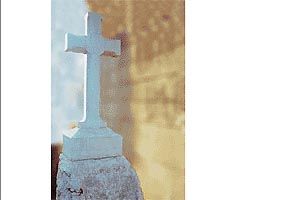She was born in Santiago in 1810 in the popular neighborhood of La Chimba. Her humble origins she came from a family of artisans- forced her to receive a minimal education and work as a housekeeper in the homes of wealthy families from a young age.
This way, she became an employee of a Dutch family, which in 1833 took her to work to Peru.
A few years later, and thanks to her savings, Candelaria Perez became independent and set up her own business in Callao: a food shop dubbed Fonda Chilena, where the specialty was fried fish.
She was enjoying her business when the confrontations between our country and the Peruvian-Bolivian Confederation erupted.
The enemy side did not only face the Chilean troops that had arrived, they also retaliated against the Chilean residents. Candelaria Perez was one of the victims of the looting and violence, stripped of her possessions just because she was Chilean.
Due to this, Perez joined the Army and collaborated in different missions. Despite the fact that her knowledge of the area was highly useful for military actions, she had to deal with the contempt of the soldiers, who looked down on including a woman among the troops. But after a short time, she showed shrewdness and bravery; although she had joined to serve as a canteen girl and nurse, she even performed secret espionage missions, carrying messages to the national ships that were anchored at port.
She was found out by the Peruvian officers, jailed and freed after the Chilean victory at the battle of Portaga de guias. Later, she joined the Chilean army and fought on equal terms in the following confrontations. Once she finished her work as a soldier, she devoted herself to tending the sick.
Alas the bloodiest battle had yet to be fought. On January 20th, 1839, Candelaria Perez fought in the battle of Yungay. Her bravery was proven during the assault on Pan de Azucar, where she was part of the 400 men that were under the order of Manuel Bulnes, which scaled the hill with great hardships, burying their rifles and withstanding the attacks from the Bolivians that were at the top. Perez was not discouraged, even when she had to continue the climb with the body of captain Guillermo Nieto in her arms, who speculations say was her lover, she continued on.
Finally, upon reaching the top with almost half of her comrades, she fought tirelessly against the allied troops, becoming part of one of the most important victories of the campaign.
After the victory, Perez and the rest of the heroes were received in the country with high spirits and fervent veneration. The Army recognized her work and promoted her to the rank of ensign, granting her a lifelong pension of 17 pesos a month. She died in Santiago on March 28th, 1870, riddled by age related diseases.








